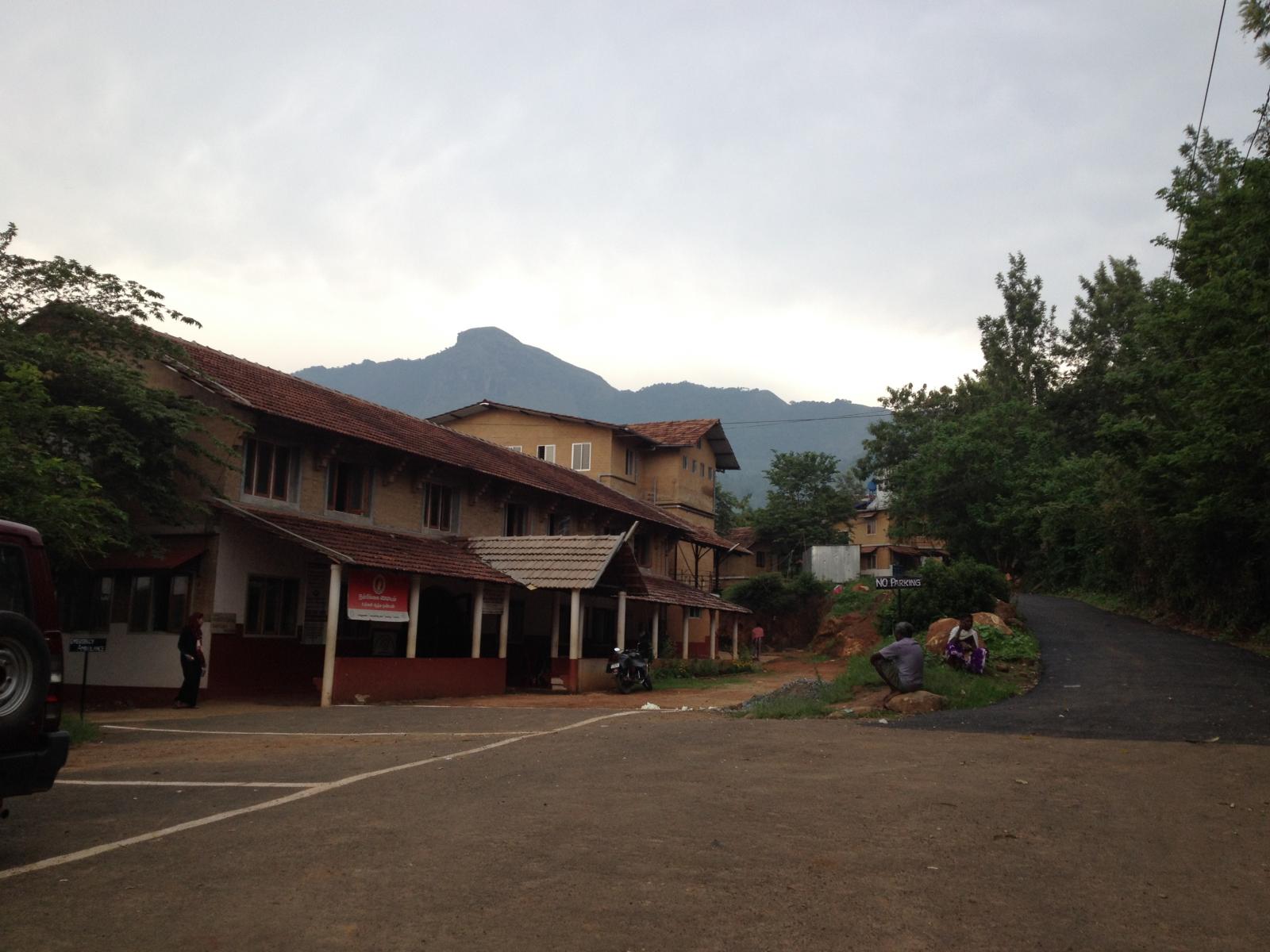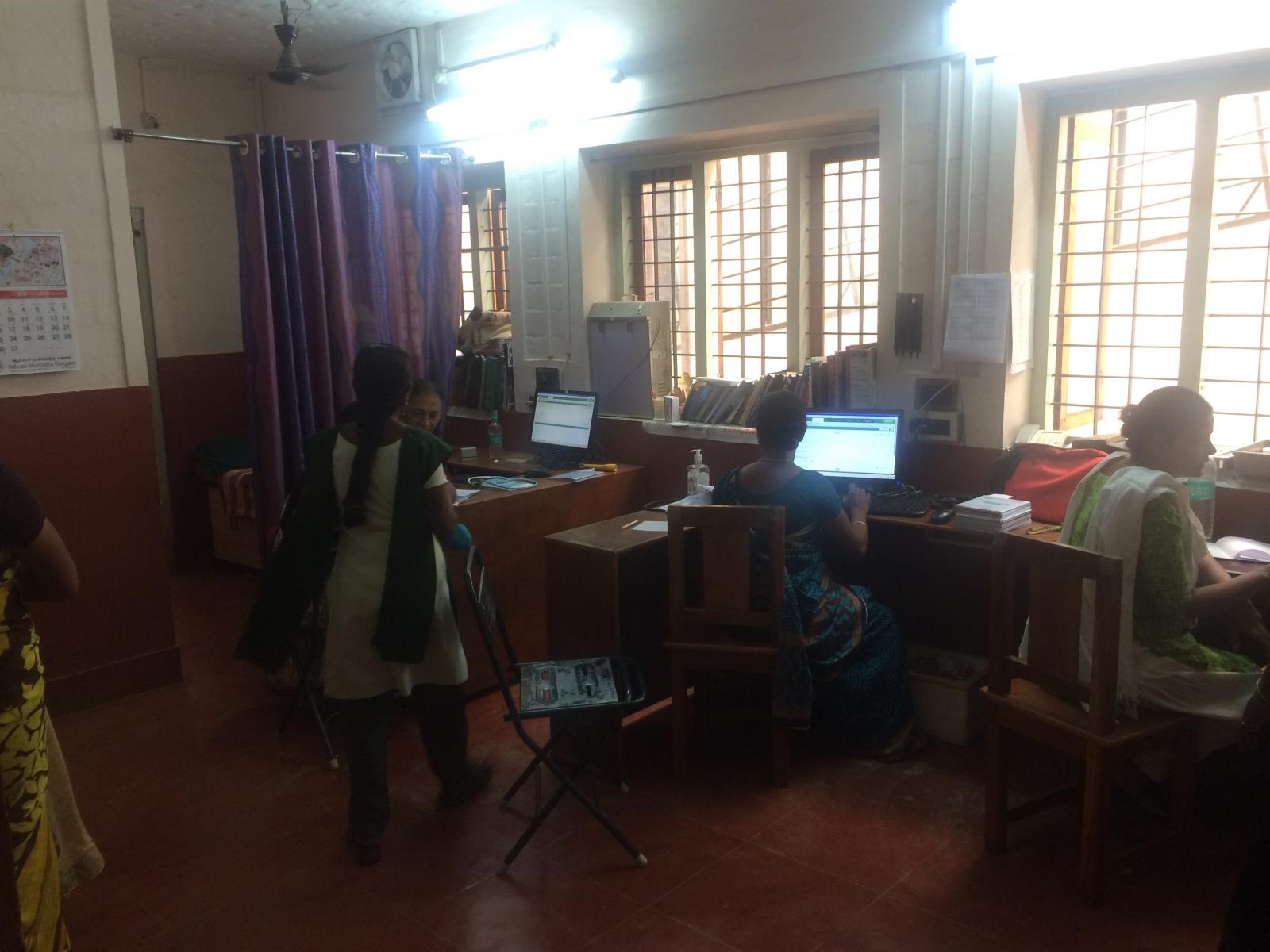
Partnering With a Hospital for and by the Adivasis
It’s not every day that you hear about a hospital run by and for the adivasis, a tribal population of India. Under the umbrella of Ashwini (Association of Health Welfare in the Nilgiris), the Gudalur Adivasi Hospital is no less than a modern day city hospital for their dedication towards patient care, their processes and passion.
With initially only a Community Health Programme for adivasis in Gudalur in 1987, run by doctors Deva and Roopa, the community soon pushed for a full-fledged hospital. But setting up a hospital seemed highly improbable at the time due to lack of funding and adequate healthcare professionals. Then an incredible connection happened. A doctor couple (Dr. Nandakumar and Dr. Shyla) decided to move to rural India from the US, where Dr. NK, as people call him, finished his fellowship in surgery. It had been their long time wish to live in and serve the people of rural India, and when they heard of this opportunity, it was a match from heaven.
The Genesis
Initially, Drs. Deva and Roopa trained adivasi women as health workers in the villages. However, as the tribals became more aware of their health, the need for a hospital became urgent. Thus started The Gudalur Adivasi Hospital. Tribal boys and girls were trained as nurses, accountants and paramedical staff. With time, the hospital attracted numerous medical professionals from around the world. Over two decades later, maternal deaths are a rarity and the area has a better health track record with infant deaths being lower than the national average, and with the adivasis coming voluntarily to the hospital to seek health care.

But even with the sense of accomplishment, there emerged a need for greater collaboration. The hospital used a medley of home-grown systems which weren’t inter-operable. These systems, which were built on old technology, could not cope with the expanding hospital needs and its well defined processes. They were keen to have a system that they could manage with completely on their own.
Getting Set
It was during a conference in 2015 that a founder member of Ashwini, Stan Thekaekara discovered Bahmni, an open source hospital information and electronic medical records (EMR) system developed by Thoughtworks. This system is specifically designed for use by people in low resource environments, where there is a lack of familiarity with technology, limited bandwidth or electricity and, a moderate ability to maintain complicated systems.
Later that year, the Thoughtworks team went to the Gudalur Adivasi Hospital to run an inception, during which they gathered initial requirements needed for implementing Bahmni on site. During this process, multiple aspects had to be determined or verified - whether Bahmni is a fit, where Bahmni needs work or modification to support the hospital’s needs, which are the places where the system already supports the hospital etc.
To empower the hospital staff to implement and maintain their EMR, Kannan, the hospital’s technology specialist spent a month at the Thoughtworks office in Bangalore, where he was trained on the system, worked with the Thoughtworks team to configure the system for the hospital’s needs and familiarized himself with the intricacies of Bahmni. This would aid him to provide technical support at the hospital when necessary.
Kannan spoke fondly of his training and time spent with the development team, whom he described as patient and helpful. “Once Bahmni was implemented at the hospital, where we previously used paper and Access-based applications,” Kannan said, “doctors not only had an online view of the patient history, but could also input the diagnosis immediately. We are now better informed regarding our pharmacy’s inventory at sub-locations like the IPD, making sure that the hospital has a valid inventory at all times.”
The Switch Over
Bahmni was slated to go live on April 1st as the team wanted to switch over during the change in financial year. During the two weeks leading up to the release, a Thoughtworks team was based in Gudalur with the intent of training the staff and migrating existing relevant data.
The training, which was held in the facility’s library, happened in small batches of 4 to 5 people, each set up with a laptop. During the daily session which lasted an hour, they were both nervous and excited. For many, this was their first experience working on a computer. Most often, their biggest struggle was navigating the mouse to click on various buttons on the application. To get them comfortable with the use of the mouse and typing, the Thoughtworks team pointed them to games on the computer, which they quite enjoyed. For most tribals in the Gudalur valley, working anywhere other than in the plantations was never an option, let alone learning something so radically advanced. It was heartening to see that the younger workers were enthusiastic and picked up the workings of the system quite quickly. They also offered to help out during peak times by operating the computers at the pharmacy or at the billing counter.
During the two weeks after the go live, the Thoughtworks team worked closely with the hospital staff to iron out variations in the templates, font, setup, features etc. With every passing day, the hospital staff’s dependence on the Thoughtworks team reduced. "The Thoughtworks Bahmni team who came to Gudalur for the implementation were dedicated to smoothen out the entire transition.” said Dr.Shyla. “No doubt the tribals with limited technology experience worked hard to make it all come together, but it was made easier with the support from Thoughtworks.”
It’s been two months since the facility implemented Bahmni, and they are already using the system to manage their activities. At many points of care within the hospital, they have gone paperless, making information flow seamlessly across the various departments.

Moments of Truth
When an establishment like this one, with well-defined processes, having the experience in using systems in a few areas of the hospital and with a dedicated person on site with technology experience reaches out for help, you know that it’s the ideal recipe for an implementation. The migration of data, the training and other allied activities critical to an implementation happened with relative ease, only because the adivasi hospital team embraced the change wholeheartedly.
For those Thoughtworkers who were a part of the implementation, it was a humbling experience - to be able to see how the users respond to what the developers have built. When one is no longer miles away in a city office, the reality is quite striking.
This is what Dr. Shyla had to say:
“Today the team is confident of using Bahmni; one hears them discussing issues and solutions to the same degree! Apart from work having become more efficient, there is a big sense of achievement in the team - difficult as it might be, we could do it!”
For many years, the adivasis have been neglected, despised even. The Gudalur Adivasi Hospital is taking numerous steps towards elevating their position in society - from entrusting patients with their own health records and encouraging them to be the advocates of their health, to providing health insurance for them. Originally, the hospital was established only for the adivasis, but over time, they have eliminated the restriction and made healthcare available to the non tribal residents of the Gudalur valley as well. Their inclusive nature has increased their value in society. Unlike typical NGO-run hospitals, where control is with promoters or trustees of the NGO, the Ashwini Adivasi Hospital is managed and run by adivasis, making them completely self-reliant and sustainable. Change is taking place, one village at a time.
As the communication and marketing lead for Global Health, it is my privilege to work closely with passionate Thoughtworks technologists who are devoting their gifts to improve the lives of the underserved. In the course of my interview with Thoughtworkers on ground during the implementation, it was clear that this story needed to be told. If you are interested in getting involved, please contact the team at global-health@thoughtworks.com or follow @bahmniorg on Twitter.
Disclaimer: The statements and opinions expressed in this article are those of the author(s) and do not necessarily reflect the positions of Thoughtworks.














